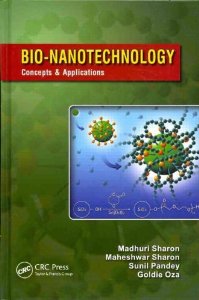Nanotechnology is one of the most paradigm changing and exciting fields to come along in the history of materials science. The amount of information and research in this field has increased astronomically in the past 10-15 years and I started this site to guide everyone from children to scientists to a better path of understanding the principles, implications and applications of nanoscience.
I feel it is important to structure this presentation in a certain way because I find most websites on the subject to either be too uniformly basic (a nano is one-billionth of a meter, Dr. Feynman’s talk in 1959, etc.) or very topic specific without adequate context. To a large degree, this is the nature of nanotechnology as it covers a wide breadth of disciplines while often diving into advanced physics and math concepts.
The point at which any one person could fully understand all the information available on nanotech is long since passed as nanotechnology research and journals are now published faster than what is absorbed by even a team of dedicated individuals.
While I realize that many nanotechnology books are already reviewed on Amazon, that avenue of evaluation is potentially diluted by either very vague statements by students such as “This book was really hard for me to understand” to “Great textbook!” which I don’t find detailed enough to be helpful. And in some cases, the review says more about the reviewer than the actual book. Also, some books have no reviews at all because they are so specialized.
My goal is to:
1) Review and share what I feel are the best books on the range of subjects encountered by those in the nanotechnology field including adjacent fields such as vacuum science, plasma physics, etc.
2) Develop mini-quizzes of varying difficulty while covering a multitude of areas.
3) List key concepts in a concise and accurate fashion so that a more intuitive understanding of nanotechnology is gleaned – I am now building a separate website dedicated to this effort.
My focus is heavily slanted towards bio-nanotechnology as I find this the most interesting application with the potential for the greatest impact on the quality of life. Also, it often involves multiple cross-disciplinary fields including chemistry, biology, materials science, physics, electronics, fluid dynamics, microscopy, magnetism, optics, etc.
This is for my personal benefit as well; some say you don’t really understand a subject as well until you start teaching it to others.

